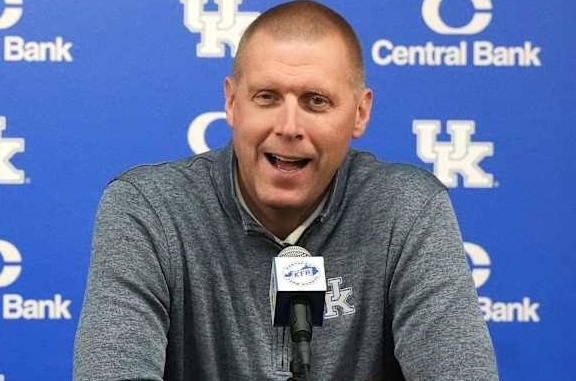Did the Refs Steal the Game? NCAA’s Investigation Takes an Unexpected Turn!
The Kentucky vs. Oklahoma game was supposed to be a classic, but instead, it has become one of the most controversial matchups of the season. Late-game officiating decisions have sparked outrage, with fans and analysts alike questioning whether the referees played a role in deciding the outcome. Now, after an intense investigation, the NCAA has released its findings—but the conclusion has only raised more questions.
With Kentucky holding a slim lead in the final moments, Oklahoma was mounting a comeback. However, a string of highly questionable calls completely shifted the momentum. Multiple foul calls against Oklahoma gave Kentucky extra possessions and free throws, while several no-calls on apparent Kentucky fouls left Oklahoma struggling to close the gap. The most controversial moment came in the final seconds when Oklahoma’s star player was whistled for what appeared to be a phantom foul, effectively sealing the Wildcats’ victory.
The immediate backlash was intense. Fans flooded social media with slow-motion replays, pointing out inconsistencies in the officiating. Some analysts speculated that the referees might have had external motivations—especially with the rise of legal sports betting. The NCAA, facing immense pressure, launched an investigation into the game’s officiating crew, looking for any signs of potential bias or misconduct.
Then, in an unexpected turn, the NCAA released its final verdict: the referees had not engaged in any gambling-related activity. However, the investigation did uncover a troubling pattern—officiating inconsistencies that, while not illegal, had a significant impact on the game’s outcome. The NCAA acknowledged that several calls were incorrect but maintained that they were “errors in judgment” rather than deliberate manipulation.
Despite this conclusion, the ruling has only fueled more controversy. Some fans believe the NCAA is simply covering up a larger issue, unwilling to admit that officiating may have unfairly altered the result of a high-profile game. Others argue that even if no betting scandal was uncovered, the poor officiating still robbed Oklahoma of a fair chance to win.
This incident has reignited calls for increased transparency in officiating. Should referees face stricter evaluations? Should there be an independent review system for controversial calls? The debate is far from over.
While Kentucky’s victory remains official, the integrity of the game has been called into question. One thing is certain—until real changes are made, fans will continue to wonder whether games are being decided on the court or by the officials.

